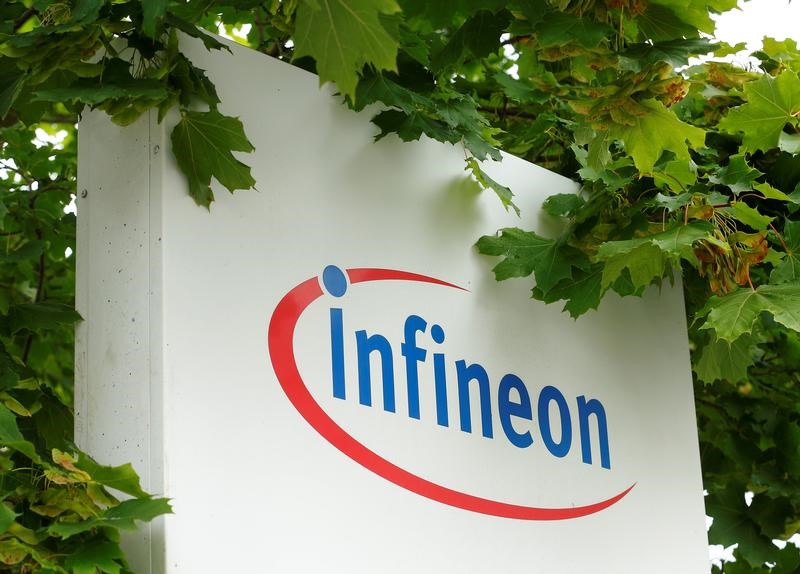FRANKFURT (Reuters) - A challenge on U.S. national security grounds to Infineon Technologies' (DE:IFXGn) agreed deal to buy Wolfspeed from U.S. firm Cree Inc (O:CREE) could crimp the German chipmaker's profit and electric car ambitions, analysts said.
Late on Wednesday Infineon said there is "considerable risk" that its acquisition of compound semiconductor specialist Wolfspeed from Cree for $850 million (676 million pounds) will be derailed after the companies said they had been told by a U.S. government security panel that the deal posed security risks.
The Committee on Foreign Investment in the United States (CFIUS), a government panel that scrutinises deals for possible security concerns, has not identified any steps the companies could take to allow the deal to be completed, they said.
Wolfspeed was expected to bolster Infineon's expertise in new chip-making materials, including silicon carbide and gallium nitride used in electric vehicles, low-power mobile antenna gear and other energy-saving devices, helping to maintain its leading global position in power-management chips, analysts said.
"We believe that the acquisition of Wolfspeed would have been key for Infineon to maintain its technology leadership in power semiconductor technology," Baader analyst Guenther Hollfelder wrote in a note to clients on Thursday.
Wolfspeed compound semiconductor technologies promise to give Infineon a leg-up as the electronics world shifts from a reliance on silicon to embrace newer semiconductor materials, including silicon carbide, he said.
Another broker, Credit Suisse (SIX:CSGN), had estimated that Wolfspeed could boost Infineon's compound annual growth rate over the next two years by 2 percentage points to 13 percent and give a bigger boost to earnings per share through the 2018 financial year.
Infineon stock fell 2.7 percent to 16.94 euros per share in early trading in Frankfurt on Thursday.
The intervention of CFIUS is the latest blow to European technology mergers because of action by the United States, which has stepped up efforts to prevent the transfer of what it considers to be sensitive technology, even when the deal involves a traditional ally, such as Germany.
In December a government-backed Chinese investment fund dropped a 670 million euro bid for Germany's Aixtron (DE:AIXGn) after the United States blocked the deal on security grounds. Its chip-making equipment was used to produce chips for Patriot missile defence systems, among its many uses.
Wolfspeed would help Infineon in the electric car market, where Japanese rival Rohm (T:6963) and Franco-Italian company STMicroelectronics (PA:STM) now lead in silicon carbide. It could also help Infineon to drive down the costs of producing silicon carbide parts, the Baader analyst said.
